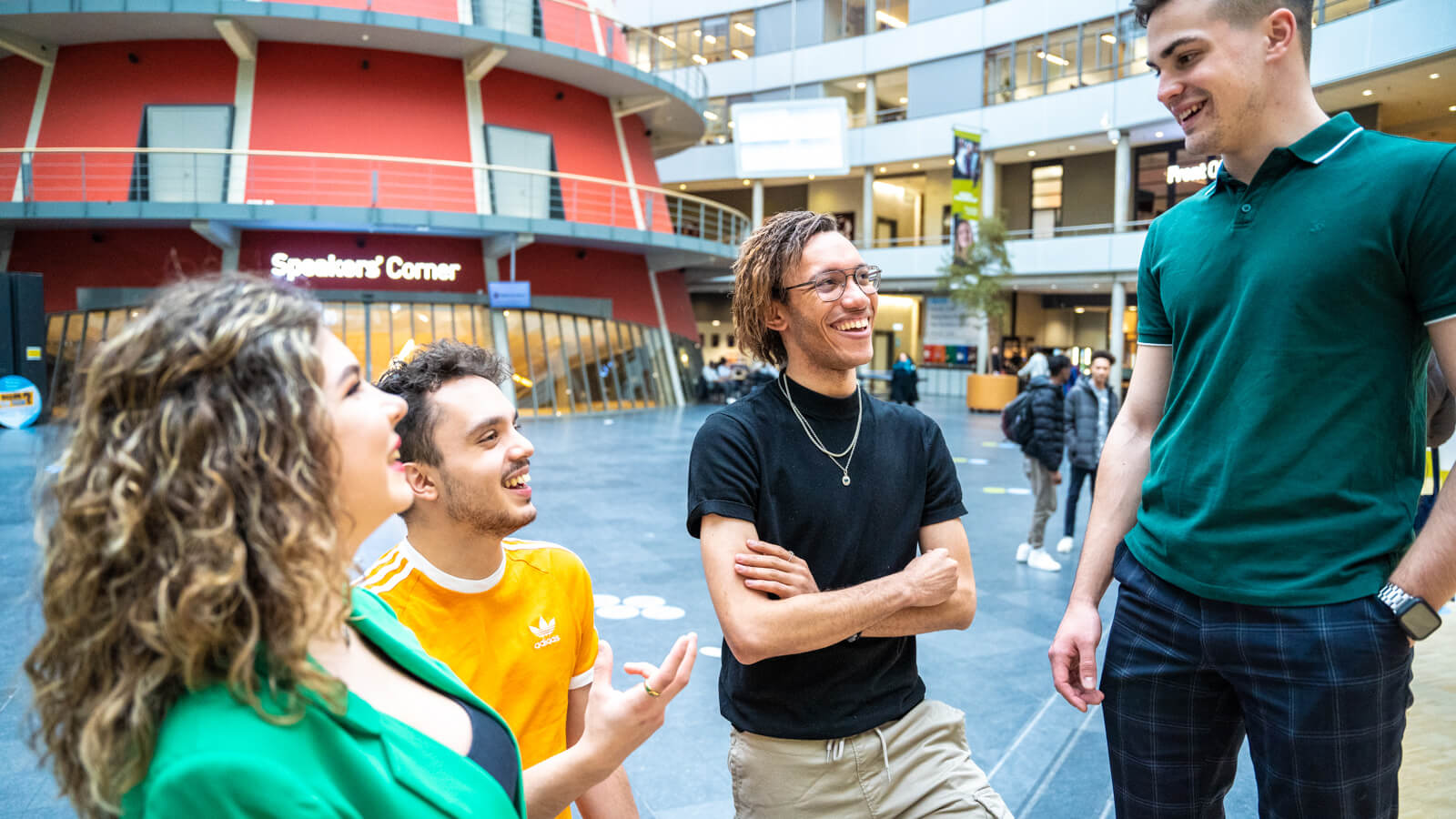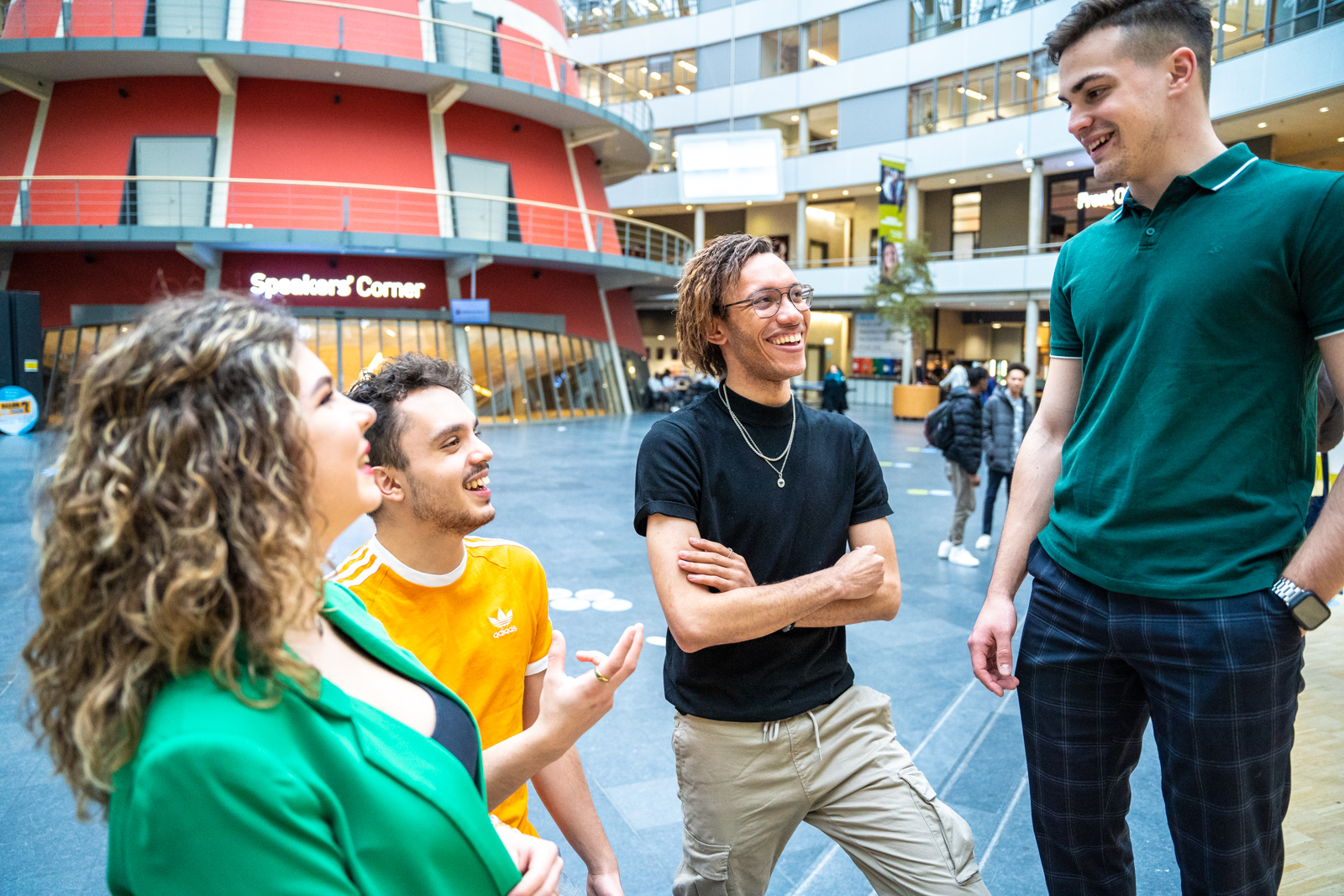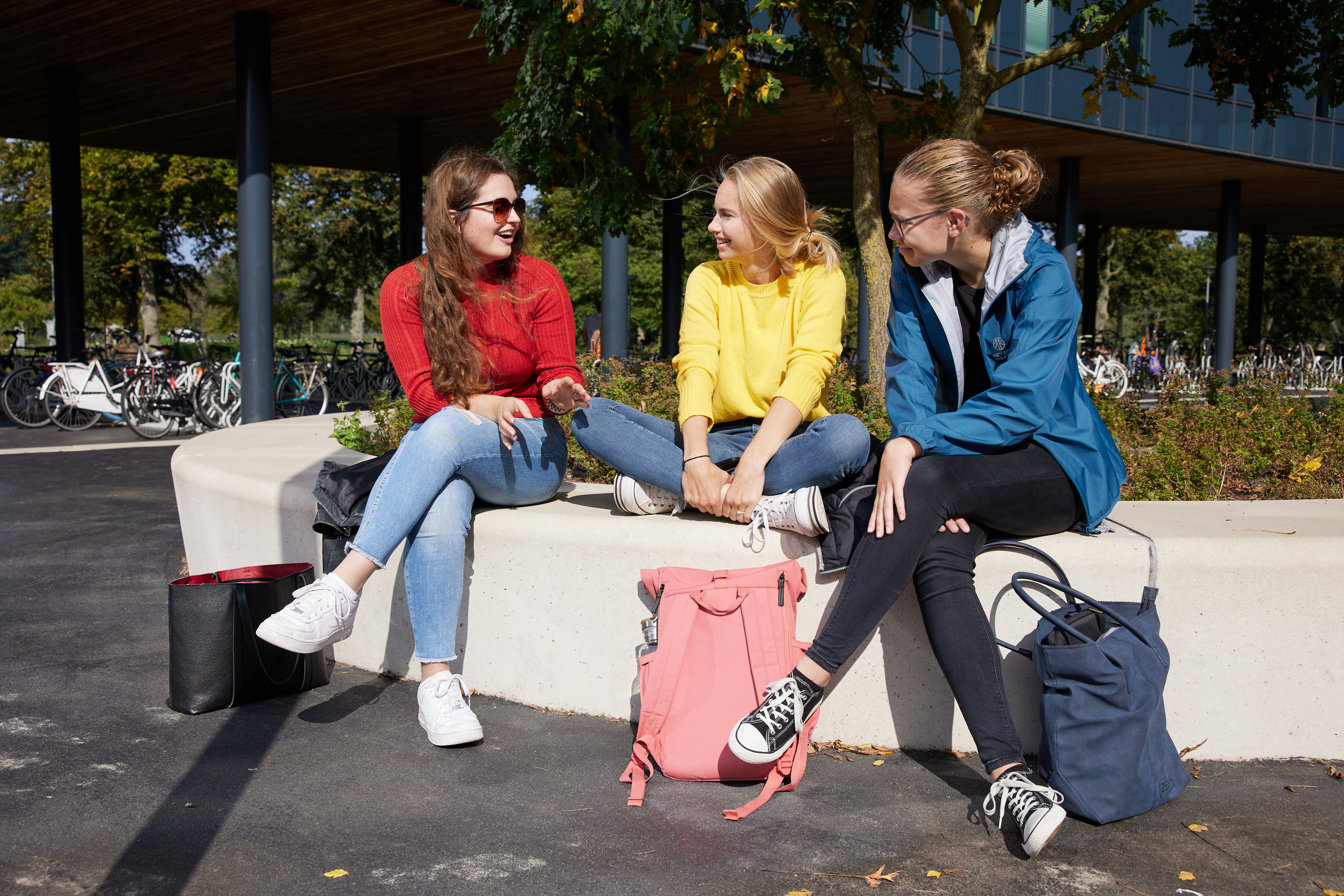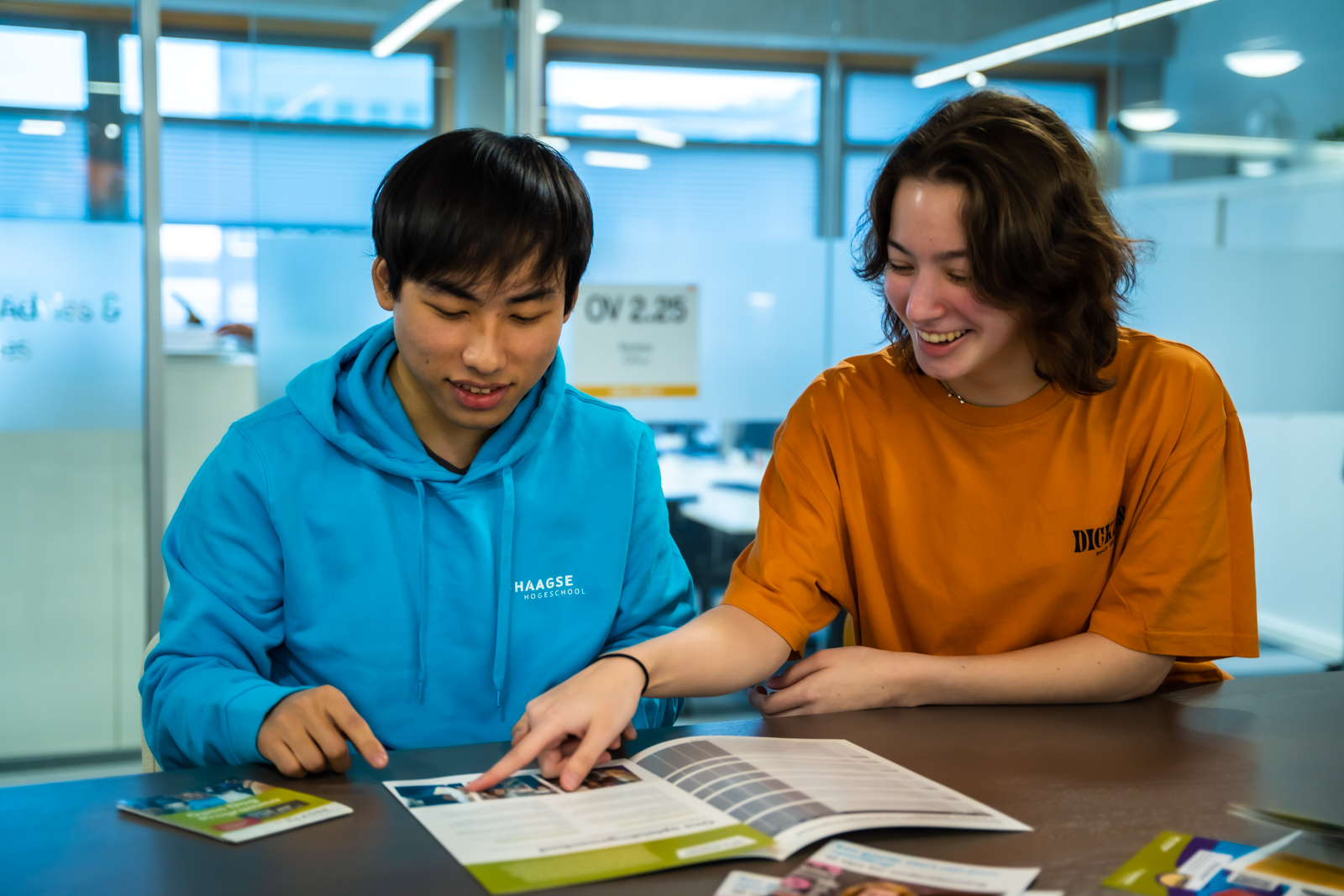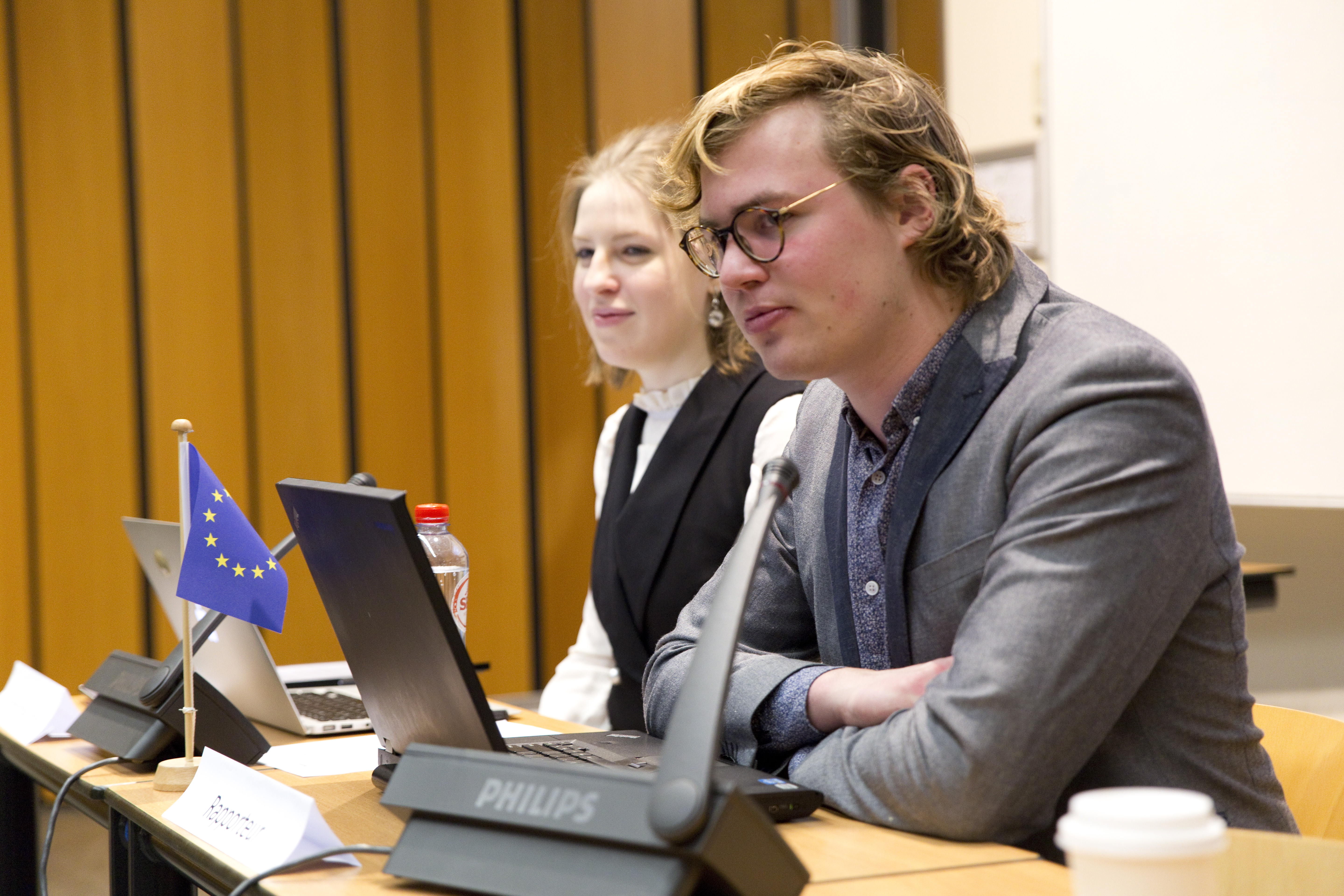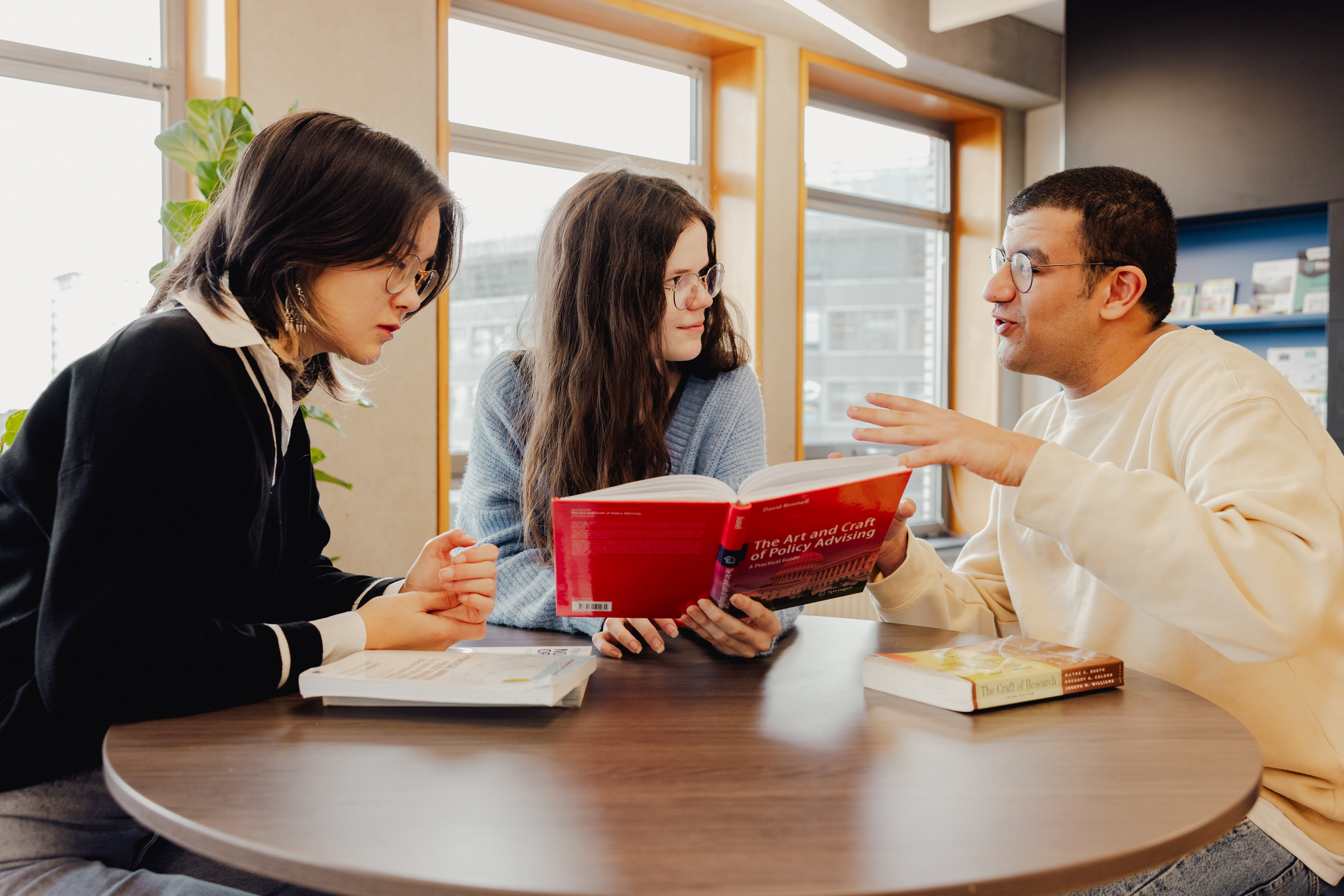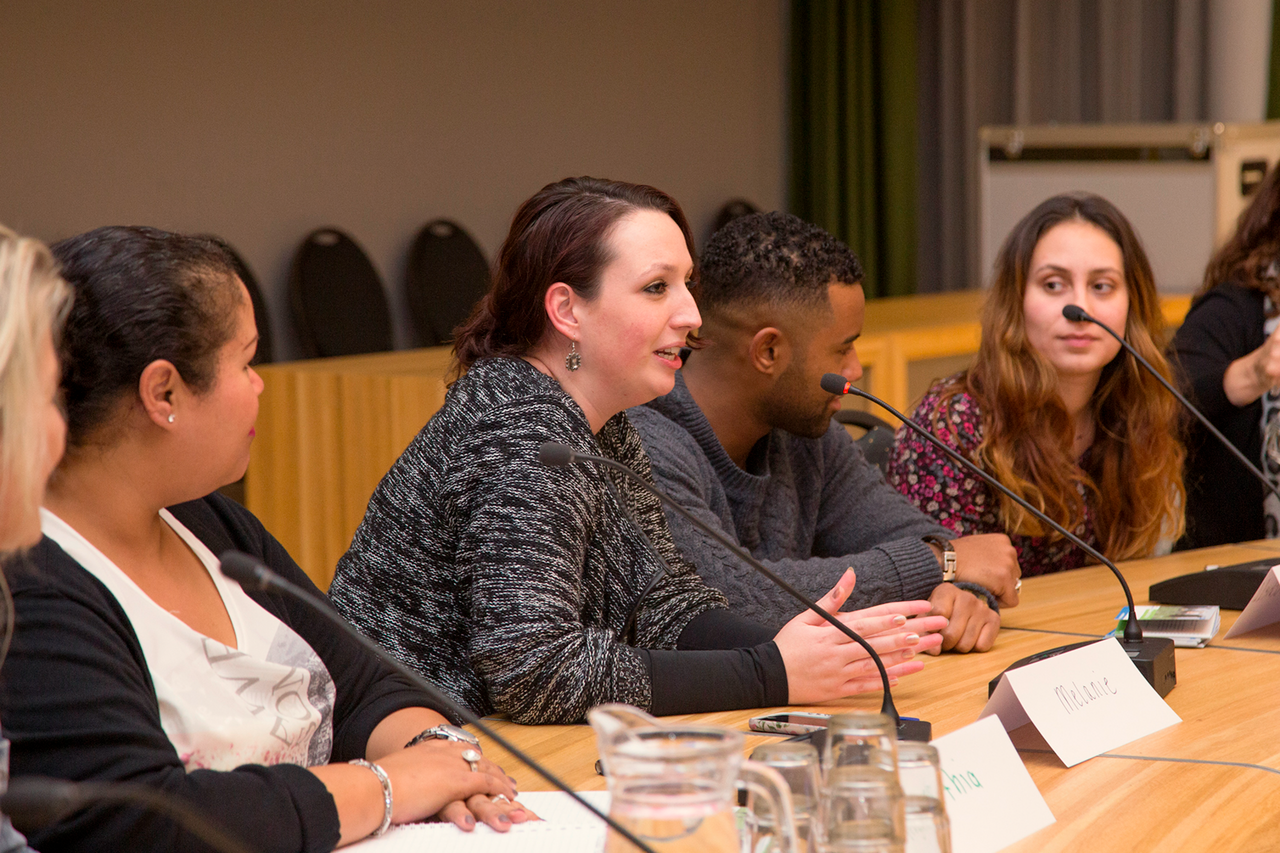Important deadline! Apply until May 1st for this programme via Studielink. Read more
For you?
In a fast-paced, globalised era of constant change, organisations, institutions and businesses need adaptable professionals, to advise and assist them in dealing with the realities of operating in Europe and facing the big challenges of the 21st century.
With a mix of knowledge of business and politics with professional skills and foreign languages, our interdisciplinary European Studies programme equips you for a variety of jobs in policy advice, communications, export and other fields at public and private sector organisations. It can also prepare you for an international master’s programme in business, public policy or international relations, giving you international options.
European Studies will turn you into a global citizen, by offering you an English-language education in an international classroom, by sending you on exchange to a foreign university and by putting you to work on an internship at an non-profit organisation, government institution or private business, where you’ll find out what you have to offer the job market. It will also help you establish an international network of European Professionals to keep you connected as you move forward in your career.
This 4-year Bachelor of Arts in European Studies will take you beyond borders, but we also offer a three-year fast-track for select students if you’re up to the challenge.
Admission requirements
You have a Dutch diploma
| Preliminary education | Required profile |
|---|---|
| Havo (senior general secondary education) |
|
| Vwo (pre-university education) |
|
| Mbo (senior secondary vocational education and training) | Level 4, middle management or specialised secondary education programme |
You have a non-Dutch diploma
To enrol for the ES 3 year programme you will need a secondary school diploma comparable to a Dutch VWO diploma and a good command of English.
Before we can decide on your eligibility, we’ll need to assess your secondary school certificate.
To make sure your certificate is evaluated fairly, we work with NUFFIC, an organisation that specialises in the assessment of international education qualifications.
Entrance advice
All European Studies students follow French, German or Spanish throughout the programme and can start at an advanced level or at beginner level. Students with no previous language learning experience can start at beginner level. Students who already had French, German or Spanish at secondary school are strongly advised to continue with that language, for the following reasons:
· Doing an advanced language means you can graduate with a professional level, giving you an edge on your CV
· Advanced level languages expand your options for studying abroad
· Students doing an advanced language can participate in special projects and field trips.
Students with previous experience in French, German or Spanish can request a different language, but all students must keep in mind that space in beginner level languages is limited and we cannot guarantee that there will be enough room to accommodate all requests.
Language requirements
This programme is taught entirely in English. You’ll need a good command of the English language, both spoken and written.
Bachelor’s candidates who are educated in the Netherlands, UK, Ireland, USA, Canada (Quebec only when the education language is English), Australia, New Zealand, South Africa or Malta, or students holding a diploma (including English as an exam subject) stated on this diploma list, don’t need to take an English proficiency test.
All other prospective students are required to hand in a valid and sufficient language test.
Please check our entry requirements for more information.
If you completed your prior education in another country than those listed above you might still qualify for exemption, for example if:
-
you have an American or International High School Diploma, or
-
you have a European or International Baccalaureate Diploma
Please contact the Enrolment Centre and ask for details.
Don’t meet the entry requirements?
Perhaps your academic background is not quite the right level. Or you need some help improving your English skills. Don’t worry. There might be some alternative options to help you get in, and prepare yourself for a successful start of your studies at The Hague University of Applied Sciences (THUAS).
Admissions Test 21+
If you’re 21 years old before 1 September 2022, but don’t have a diploma or a qualification that meets the entry requirements, you can take the 21+ Admissions Test. The 21+ Admissions Test is offered at several dates between January and the start of the academic year, and consists of a digital general capacity test. Please note that you can only participate if you have an EEA-nationality or residence permit for the Netherlands that is valid on the test date.
English Academic Preparation Programme
Need help with your English? If you haven’t quite reached the right level of English for your chosen Bachelor’s or Master’s degree programme, you can enrol for English Academic Preparation Programme. After the successful completion of this programme, you’ll be ready to start your degree at THUAS and you will already have a good taste of studying and living in the Hague.
You have an mbo-diploma
All ES students take modern foreign language courses in French, Spanish or German. As an MBO student, you’re allowed to follow a beginner’s course in one of these languages. You can request an advanced language course, but you’ll have to pass an intake test arranged before the start of the academic year to make sure you are at the right level.
Decisions regarding your qualification for admission
There are no exceptions to the official admission requirements. The Enrolment Office is the only party that can make decisions regarding your qualification for admission based on official regulations. You can’t rely on any other sources of information for your qualification for admission.
Degree programme content
What will you study each year?
Testimonials from our students
Who better to tell about the degree programme than our own students? They share their experiences here. Some of them are also ready and waiting to answer any questions you may have.
Career perspective
What will you become
Corporate Social Responsibility Advisor
Sustainability Advisor
Regulatory Affairs Officer
European Account Manager
Export Manager
Business Development Analyst
Compliance Officer
Consular Officer
Corporate Communications Officer
(Social) Entrepreneur
Europe Specialist
Event Planner
International Liaison
Journalist
Lobbyist
Marketing Coordinator
Marketing Consultant
Online Marketeer
Parliamentary Assistant
Policy Officer
Political Advisor
Public Relations Officer
Project Leader
Recruitment Officer
Sales Manager
Small Business Owner
Social Media Coördinator
Social Media Marketing Officer
FAQ
Where do graduates of the European Studies programme end up?
Almost half of our graduates go on to take a masters programme. Of those who don’t, the majority find employment. We know this from our alumni network and recent surveys. Roughly one in three ES students are offered a job by their internship provider every year. Our alumni are generally positive about the programme and its role in their careers. Many maintain ongoing relationships with the programme by participating in events or working on projects with our students. Some even return to the university in a teaching role.
What is the difference between the 4-year and the 3-year programme?
European Studies 4 and European Studies 3 cover the same knowledge and skills and result in the same Bachelor of Arts, but travel different routes. Because the 3-year programme is shorter, it combines some courses together offers a more challenging route that requires more self-study.
What types of support does the programme offer?
All students follow a personal development programme throughout their studies and have the help of a staff coach who meets them regularly to guide their study progress. They also receive supervision on big projects and have a country tutor oversee their exchange. European Studies also offers a tutoring and a language partner programme, in which students pair up to support one another.
What is the average class size?
There’s a maximum of 31 students per class, but most classes have approximately 25 students. Reflecting the diverse and interdisciplinary nature of the programme, various teaching methods are used. At times you attend lectures with 2 or 3 classes, at others you take single-class seminars or participate in smaller workgroups. Most of your classes take an interactive approach.
What type of testing can I expect?
There are some exams at European Studies, featuring multiple choice questions, open questions or both, but most assessment is in the form of practical, professional assignments and projects. Whenever possible, the assessment of knowledge and skills is integrated into the production of professional products. This could be anything from a marketing or export plan to a piece of policy advice.
Why is everything in English?
As an international programme, European Studies is committed to giving all students an international experience. This means that you work in mixed and multicultural groups form the very start of your studies. It’s an ideal way to develop the essential English skills you need for a successful career in today’s globalised world.
Do I have to worry about my English?
Don’t worry, your English doesn’t need to be perfect! Students who are open to the international environment and are willing to make the effort will adjust right away. You will also take communication skills courses that help with your English. Some international students need an English proficiency certificate to join the programme. For details, take a look here or contact our enrolment centre at csi@hhs.nl.
Continue studying
Do you want to go straight to work or continue studying after graduation? Many ES graduates go on to earn master’s degrees, often in the following fields:
- International Relations
- Political Science
- Development Studies
- European Union Studies
- Public Administration
- Law
- Communication
- Marketing
- International Business
- Master of Business Administration
While some Dutch universities may require you to do a pre-master programme, ES graduates have studied at places like Coventry University, King’s College, the College of Europe, the London School of Economics, Sciences Po Lille, Johns Hopkins and more.
There are many possibilities but make sure that you carefully study the entry requirements before applying for a master’s degree.
Testimonials from our alumni
What lies in store after studying European Studies? Our former students tell us where they ended up and how they look back on their study years.
Practical information
What else do you need to know?
How to apply
Your enrolment request must be submitted through Studielink. Before you do, please check the official name of the programme below. Would you like to find out more about the application process first? Check our page How to apply . The key deadlines are listed here as well. This degree programme starts in September and there is no intake in February.
Tuition fee
You will have to pay tuition fees when you enrol on a bachelor's programme. You can pay in one or more instalments. If you pay in more than one instalment a small administration fee is charged.
More information about tuition fees
Scholarships
Find out more about scholarships for international students. Please note that these scholarships are one-off scholarships only, meaning that if you obtain them it is only for your first year of study.
Student finance
Dutch students qualify for extra financial support via a loan. Dutch students automatically qualify for this financial assistance and international students may be eligible if they have lived in the Netherlands for at least five years or are employed for at least 56 hours per month.
Additional Costs
You must also budget for books, excursions and field trips. You can expect to pay approximately €800 per year to cover these additional costs. During your semester abroad, you will also need to pay for tickets, housing and insurance.
Visa and residence permit
Help in choosing your study
We would like to help you make the right decision
It takes a bit of thought and research to find the right programme. The Hague University of Applied Sciences organizes various activities throughout the year to give you the best possible idea of the various studies offered. You also learn what it’s like to study at THUAS. This way, you can click on the registration button without a doubt in mind. Or you’ll know for certain it’s not right for you.
Walk in at our Study & Career Centre for…
Assistance during your studies
European Studies is committed to helping every student succeed. In addition to having a mentor who supervises your class and provides personal coaching, you will have access to a vast support network that includes confidential advisors, counsellors and a team of school psychologists. So if you run into any problems – whether they’re academic or personal – you can get the help you need.
The Hague University of Applied Sciences also offers personalised support for students with special needs. If you have any special medical or psychological needs, our team is ready to make the necessary arrangements to make sure that you have every opportunity to succeed. Ask your mentor for details. For more information about student counsellors/student psychologists, high-performance sports, Dutch language support or studying with a functional disability, go to our page about support during your studies.
Official details of the programme
This degree programme is registered in the Central Register of Higher Education Programmes (CROHO) as follows:
Official Dutch name of degree programme: European Studies
Official international name: European Studies
Programme code (Isat): 34419
Institution code (Brin): 27UM
Both the official Dutch and the official international name of the degree programme (current at the time of your graduation) will be printed on your diploma.
For more information on the accreditation of this degree programme, see the Accreditation Organisation of the Netherlands and Flanders (NVAO) website.
European Studies received an outstanding accreditation from the NVAO in 2016 and earned a special certificate for internationalisation, recognising the programme’s efforts to create a truly international curriculum tuned in to the needs of a global labour market.
In 2017, ES was also awarded the ‘Certificate for Quality in Programme Internationalisation’ by the European Consortium for Accreditation (ECA).
Downloads
Binding Study Advice (BSA)
To continue your degree programme after the first year, you need to earn 50 of the 60 credits (EC or Credits). In some cases, the degree programme may also require that you pass a specific subject as pEuropean art of the credit requirements. We call this a qualitative requirement. If you meet the credit requirements as well as the qualitative requirement where applicable, you will receive a positive binding study advice (BSA) from the Examination Board at the end of your first year and you will be able to continue your degree programme.
If you earn less than 50 credits or don’t meet the qualitative requirements where applicable, you will receive a negative binding study advice and will have to leave the degree programme. This is why this advice is called a Negative Binding Study Advice (NBSA).
Your academic progress may be affected by personal circumstances such as illness or the professional practice of a sport. It is important that you inform the Examination Board immediately of any personal circumstances that might apply to you. The Board can take these into account when issuing its study advice.
Read all the rules for the binding study advice in Chapter 7 of the Programme and Examination Regulations (PER) for your degree programme.
Looking for a different degree programme?
You might find these programmes interesting too!
